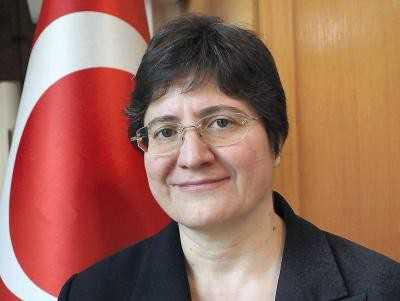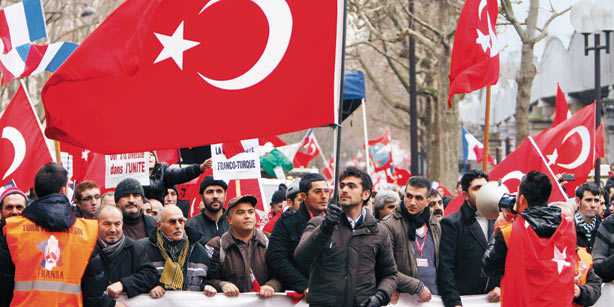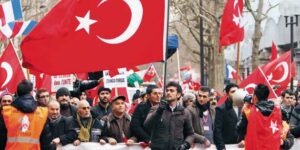How has the Arab Spring affected Turkey? What is the Turkish government’s stand on the revolution currently engulfing the Middle East?
The ongoing transformation in the region emerged and developed as a consequence of the aspirations of the local people. They basically call for transparency, rule of law, political participation, freedom, constitutional reforms and better economic opportunities. From the very beginning, the Turkish Government encouraged the leaders of the countries in question to listen to the voice of their people and respect their demands. We are contributing and determined to contribute more to these countries’ efforts to come out of transitional period by achieving their ambitions on the basis of social consensus.
What are the challenges you encounter in your attempt to promote stronger bilateral ties between Turkey and Malaysia?
Due to different geographical locations, the priorities of Turkey and Malaysia justifiably diverge. Indeed, this might present itself as a challenge when you intend to foster bilateral relations. Keeping this limitation in mind, our Embassy focuses on areas of cooperation in every field. PM Najib’s official visit to Turkey last year boosted our relations, and we expect that relations will reach even higher levels when PM Erdogan returns this visit, most probably this year.
What made you choose a career in the diplomatic field, and what are the most important character traits, qualifications and skills for one to be a successful diplomat?
I had decided to become a diplomat when I was 14. At that age, I think I was influenced by some relatives who aspired to be in foreign services. As for the character traits of successful diplomats, common sense and patience to listen to other people, I believe, are the most important ones.
How is Malaysia seen in the eyes of the Turkish people?
Malaysia is seen quite positively in Turkey. On the other hand, it would be fair to argue that Turkish people are not much exposed to the news about Malaysia. It is our intention and duty to help narrow the gap between the two. Recently, the Malaysian Government provided assistance for the victims of the devastating earthquake in Van province of Turkey. Besides, there were many other individual acts of support shown by Malaysian people. For example, the Association of Wives of Ministers and Deputy Ministers (Bakti), headed by Datin Seri Rosmah Mansor made a donation. Gestures like these were highly welcomed by the Turkish people and I am certain that helping hands extended during difficult times will always be remembered.
Is Turkey still interested in becoming a European Union member, given the fact that the deepening sovereign debt crisis is creating so much uncertainty to the region’s economy and financial system? If so, why?
European Union (EU) membership is a long term strategic goal for Turkey. We are firmly engaged in accession process. The resoluteness and political will in our side cannot and will not be disturbed by provisional crises like the one EU has been going through.
What is Turkey’s strategy and target for its economy amid the current global economic turmoil?
Turkey has entered the current economic crisis with strong public finance, strong banking sector, political stability, strong political will, fiscal consolidation and prudent monetary policy.
We are taking the necessary measures to keep the effects of the recent crisis in Turkey to a minimum. For instance, we are committed to our fiscal discipline and monetary policy; diversify our export markets, reduce imported energy dependency by promoting energy efficiency and renewable energy, and increase domestic savings. We also introduced some structural reforms to enhance investment environment.
Turkey is the 16th biggest economy in the world now. Our target is to be in the top 10 by 2023, when we will be celebrating the 100th anniversary of the Proclamation of the Turkish Republic.
What are things that Malaysia can do to attract more investments from Turkish businessmen? And what are the sectors that would interest them the most?
Facilitating legal framework and close cooperation of relevant institutions form the basis of investment relations. Investment Agencies of Turkey and Malaysia, ISPAT and MIDA, has agreed to sign a Memorandum of Understanding, recently. Turkish Central Bank and Bank Negara have also agreed to sign a barter agreement. These are steps in the right direction.
Currently, Turkish investments in Malaysia are mostly concentrated in the defence industry. On the other hand, I am observing gladly that three Turkish companies in cosmetic, building materials and food Industries have decided to make investments in Iskandar. It is quite encouraging.
I see a great potential in the construction sector. Turkey’s construction industry is the second biggest in the world, after China. Turkey’s capable and experienced construction companies should take their share from Malaysia’s infrastructure projects.
Ongoing FTA negotiations, once concluded, will not only expand bilateral trade, but also affect investment from both sides positively.
On the other hand, Turkey offers competitive investment opportunities for Malaysian companies. Khazanah Nasional Bhd’s latest investments in healthcare, transportation and construction in Turkey are quite heartening. We expect and call more Malaysian companies to follow Khazanah.
How are trade, diplomacy and business ties been between Turkey and Malaysia and how do you see that evolving?
The bilateral relations between Turkey and Malaysia have been progressing in every field. Malaysian PM’s visit to Turkey confirmed once again the political will in both sides to improve the relations even further. Turkish PM’s visit to Malaysia and the signing of Free Trade Agreement constitute our priorities for this year. I foresee that the relations will widen and deepen for the years to come.
How are you adopting to Malaysia and what do you think about Malaysian women as compared to those in Turkey?
It is my third year in Malaysia and I can say that my adaptation period was rather short and quite easy, thanks to the Malaysian hospitality. It is a very welcoming country, indeed.
Active participation of Malaysian women in social and economic life is what impresses me the most. The high number of female students at universities is also very remarkable. I commend Malaysian women for playing such a critical role in the well being of their country.
How important is Asia to Turkey and what is being done to improve business ties with the East?
Turkey is aware of the rising strategic importance of the region. We increase our presence by opening new Embassies and also Commercial Offices. With this, we aim to better identify opportunities presented and create many bridges between Turkish people, Turkish business community and their counterparts here.
The 3rd Turkish Products Exhibition that will be held at the KL Convention Centre between March 1 and 3 2012 can be cited as an example of our efforts to improve business ties between Turkey and Malaysia. About 70 Turkish companies will be participating to showcase a wide range of Turkish products i.e. agriculture products, automotive, machineries, building materials such as tiles and ceramics, chemicals, industrial products, food products, cosmetics, gifts, decorative articles, kitchen accessories, textiles and many more. This is a must visit for anyone looking for new business opportunities in the Turkish market.
Simultaneously, in collaboration with JW Marriott KL, there will be a Cultural Week at this hotel from Feb 26 to March 3. Fascinating Turkish folk dances will be performed and selected Turkish food and delicacies will be served. Turkish handicrafts and arts such as glass blowing and marbling will also be showcased.
I would like extend an invitation to all Malaysians to join us in these events.
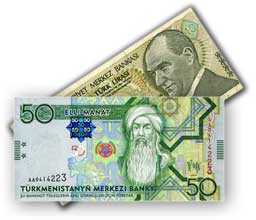 Turkey and Turkmenistan have agreed to use their national currencies in their bilateral commercial deals, Turkey’s economy minister said Monday.
Turkey and Turkmenistan have agreed to use their national currencies in their bilateral commercial deals, Turkey’s economy minister said Monday.
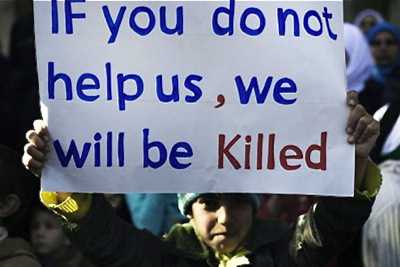
 On 4 February 2012, the media organizations of the War Party unanimously announced more than 200 deaths in Homs – a city “bleeding” -, the torture of children and “relentless” bombing. We are supposed to be witnessing the “most terrifying massacre” since the beginning of the “revolt“. Spontaneously, attacks were triggered during the night against the Syrian embassies in Washington, Cairo, Kuwait and London.
On 4 February 2012, the media organizations of the War Party unanimously announced more than 200 deaths in Homs – a city “bleeding” -, the torture of children and “relentless” bombing. We are supposed to be witnessing the “most terrifying massacre” since the beginning of the “revolt“. Spontaneously, attacks were triggered during the night against the Syrian embassies in Washington, Cairo, Kuwait and London.
